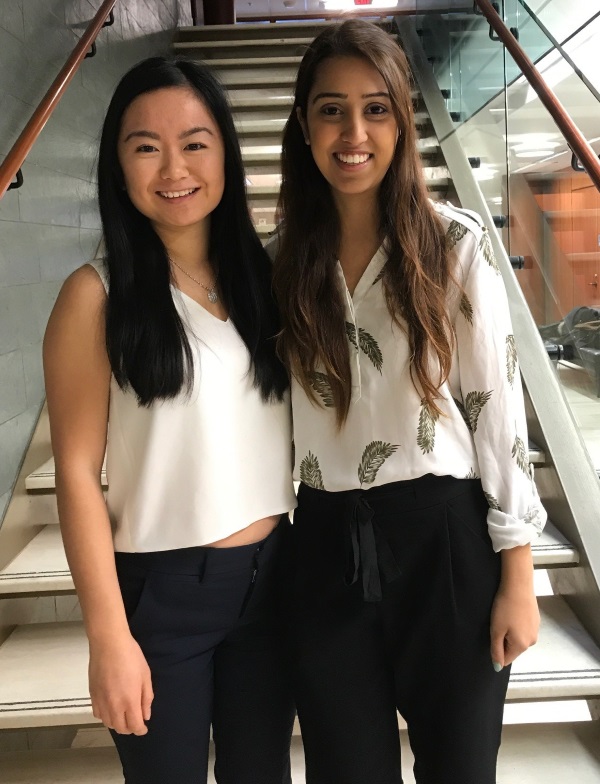Changing the cannabis conversation
January 29, 2018
Share
With the upcoming legalization of marijuana in Ontario, three groups of Queen’s University marketing students have created three unique marketing campaigns to help educate young people around the dangers of marijuana use.
Students of professors Oyedeji Ayonrinde (Psychiatry) and John-Kurt Pliniussen (Smith School of Business) studied the issues surrounding the legalization of marijuana and determined high school-aged students were most at risk. From there, they teamed up to create social media campaigns aimed at helping students in Eastern Ontario make informed decisions about marijuana use.
The students formed work groups called Disjointed, Legit Services, and Project Flux and each produced a YouTube video and a written report explaining their project.
Dr. Pliniussen encourages his marketing students to apply their learnings to real life projects that have social value and which also helps students enhance their digital marketing skills.
“A partnership like this with Dr. Ayonrinde is a perfect example of the kind of academic synergies Queen’s is noted for," he says. "I look forward to having our marketing students work with other academic units in the future.”

Project Flux created a campaign called we all know a Rachael. The team, featuring Anton Tsyhanok, Lisa Xiong, Safa Majeed, Delyth Phan, and Stefan Negus, created an Instagram persona for a fictional 17-year-old named Rachael. Through a number of posts, her character was crafted as an average high school student, with added elements exploring the potential dangers of cannabis use.
Each of the projects were broken down into components featuring a video, public education talks, apps, and websites. Dr. Ayonrinde is exploring funding from the Health Canada public education fund as well as discussing the potential with Public Health to move the projects forward to both local and national levels.
“A lot of campaigns out there can be easily overlooked because high school students don’t identify with them,” explains Ms. Xiong. “Ours is a more subtle approach. The students learn who Rachael is, they watch her posts, and they start to identify with her as a person first. They build a connection.”
Ms. Majeed adds that a lot of high school students are unaware of the health risks associated with using marijuana, including addiction. In 2017, about 20 per cent of high school students in Eastern Ontario had used marijuana in the past year. Specifically, 36.9 per cent of Grade 12 students in Ontario had used in the past year. The upcoming legalization places pressure on society to become aware of the consequences that may follow the recreational use of cannabis.
The Disjointed team, featuring Duncan Chisholm, Emma Henry, Meghan McKeown, Jenna Smallegange, and Allison Stewart, produced a video in which they asked members of the university community about their experiences, perceptions, and opinions on marijuana. The video showcases a number of common misconceptions about marijuana and highlights important medical findings.
The Legit Services team developed the slogan “What’s Your High?” and filmed a video featuring young people engaging in thrilling activities designed to give them a natural high without the use of drugs. It showed a “high” doesn’t have to come from marijuana. Team members included Emily Coleman, Vinesh Prathap Das, Thomas Hardy, Matthew Krutkiewicz, and Rachel Wong.
Dr. Ayonrinde is the Medical Director of the Heads Up! Program, an early psychosis intervention program based at Hotel Dieu Hospital. Its interdisciplinary team provides services to persons 14 to 35 years of age who are experiencing their first episode of psychosis or who have not yet received treatment for psychosis. He notes many of his young patients’ psychosis is triggered by drug use, specifically marijuana.
Dr. Ayonrinde called the projects “innovative” and is excited to develop the students’ work to the next stages in conjunction with Dr. Pliniussen at the Smith School of Business.
“Marijuana becomes legal July 1 and that legalization will permeate all parts of society,” he says. “We need to get in front of this. We need to educate. There is still so much work to do. Society isn’t ready.”